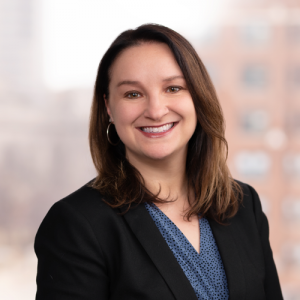Last year, as part of the CY 2015 Outpatient Prospective Payment System (“OPPS”) Final Rule (“Final Rule”), the Centers for Medicare & Medicaid Services (“CMS”) finalized a policy implementing new coding and billing requirements related to services furnished in off-campus provider-based departments of hospitals. These new requirements, which are discussed in more detail below, involve the creation of a new modifier for facility claims and a new place of service (“POS”) code for professional claims. Use of the new modifier and POS code was voluntary for 2015. However, beginning January 1, 2016, for hospitals and physicians providing services in off-campus provider-based departments, their use becomes mandatory.
Background
In recent years, there has been an increasing trend toward acquisition of physician practices by hospital organizations and converting these locations into hospital departments by meeting the Medicare provider-based requirements in 42 CFR 413.65. CMS, OIG and MedPAC have each noted this trend in different contexts. In OIG’s 2015 Work Plan, OIG stated it will both review the extent to which provider-based facilities meet Medicare requirements and the payment differential between freestanding physician offices and provider-based clinics. In addition, MedPAC has questioned the appropriateness of the payment differential between freestanding physician offices and provider-based clinics on several occasions and has recommended CMS either close or eliminate the payment gap for certain services.Consistent with the concerns expressed by OIG and MedPAC, CMS stated in the Final Rule that it intends to “seek a better understanding” of the trend of the conversion of physician offices to off-campus provider-based departments and how this affects Medicare payments, including beneficiary cost sharing obligations. To that end, CMS is requiring a new modifier on the facility claim and a new POS code on professional claims for services furnished in off-campus provider-based outpatient departments.It is important to note that these new requirements tie into the current provider-based rule requirements. In other words, if hospitals and physicians fail to comply with the new billing requirements as set forth in the Final Rule, it could jeopardize the provider-based status of the location. The regulations at 42 CFR 413.65(g)(2) & (g)(5) require both the professional bills and facility bills to appropriately identify the services as being furnished in provider-based departments, which includes using the appropriate POS code on professional claims. Specifically, these sections state:(2) Physician services furnished in hospital outpatient departments or hospital-based entities (other than RHCs) must be billed with the correct site-of-service so that appropriate physician and practitioner payment amounts can be determined under the rules of Part 414 of this chapter.(5) Hospital outpatient departments (other than RHCs) must treat all Medicare patients, for billing purposes, as hospital outpatients. The department must not treat some Medicare patients as hospital outpatients and others as physician office patientsAnother important item to note is that the new policy only applies to Medicare services, and CMS does not require that non-Medicare services be billed in the same manner. Medicaid and commercial payors may have different rules for provider-based facilities. For example in some states, Medicaid does not recognize off-campus provider-based locations, and commercial payors are increasingly only paying for services furnished on-campus as hospital services. Often hospitals must bill non-Medicare services as freestanding clinic services on a CMS Form 1500 with POS 11 (Office). Hospitals should review the billing policies of Medicaid and commercial payors to ensure they are appropriately billing for services at off-campus provider-based departments.
Applies to Off-Campus Departments
The new billing requirements apply only to off-campus provider-based outpatient departments of hospitals. For purposes of this policy, CMS is using the definition of campus from the provider-based regulations at 42 CFR 413.65(a)(2), which defines “campus” as follows:Campus means the physical area immediately adjacent to the provider’s main buildings, other areas and structures that are not strictly contiguous to the main buildings but are located within 250 yards of the main buildings, and any other areas determined on an individual case basis, by the CMS regional office, to be part of the provider’s campus.So, departments on the main campus of the hospital do not need to change their practices. CMS also clarified that these requirements only apply to provider-based outpatient departments and not to remote locations of a hospital or satellite facilities (each as defined in 42 CFR 413.65(a)(2)). In addition, claims for services furnished in emergency departments do not need to comply with the new billing policy. Interestingly, CMS did not address other types of facilities, such as Rural Health Clinics, that also may be provider-based to hospitals. Presumably, the policy in the Final Rule impacts departments paid under OPPS and should not affect how hospitals report services in those types of facilities.
Facility Claims – New “PO” Modifier
As part of the Final Rule, CMS finalized the creation of the “PO” modifier, which must be appended to every code on the facility bill (CMS Form 1450/UB-04) for services furnished in off-campus provider-based outpatient departments. CMS allowed hospitals to voluntarily report the “PO” modifier beginning January 1, 2015, but hospitals will be required to include the modifier on claims beginning January 1, 2016.
Professional Claims – Updated Place of Service Codes
CMS originally intended for the “PO” modifier to be included both on facility bills and professional bills. However, in response to some commenters’ concern that a new modifier would be administratively burdensome, CMS called for the creation of a new POS code for professional claims (Claim Form 1500) to identify services furnished in off-campus provider-based outpatient departments.On August 6, 2015, CMS published an updated document titled “Place of Service Codes for Professional Claims” that includes a new POS code 19 for “Off-Campus Outpatient Hospital” and a revised POS code 22 for “On-Campus Outpatient Hospital.” The descriptions are as follows:
| 19 | Off Campus-Outpatient Hospital | A portion of an off-campus hospital provider-based department that provides diagnostic, therapeutic (both surgical and nonsurgical) and rehabilitation services to sick or injured persons who do not require hospitalization or institutionalization. (Effective January 1, 2016) |
| 22 | On Campus-Outpatient Hospital | A portion of a hospital’s main campus that provides diagnostic, therapeutic (both surgical and nonsurgical) and rehabilitation services to sick or injured persons who do not require hospitalization or institutionalization. (Description change effective January 1, 2016) |
Currently, POS code 22 is used to identify hospital outpatient departments regardless of location. The updated POS codes will be effective January 1, 2016 and will require professionals providing services in hospital outpatient departments to include the correct POS code in the applicable field on the CMS 1500 claim form (or electronic equivalent). The updated POS code set can be found here.
Practical Takeaways
- Hospitals should identify all off-campus provider-based outpatient departments that will be affected by the Final Rule. Remember, the new policy does not apply to all off-campus locations of a hospital, just outpatient departments paid under OPPS.
- Hospitals should implement appropriate policies and procedures to include the “PO” modifier and the correct POS code on Medicare claims furnished at off-campus provider-based outpatient departments. This will include training hospital staff and physician groups on the appropriate billing requirements at these locations.
- If a hospital is considering converting a freestanding location to provider-based, it should make sure that billing personnel are aware of the new requirements once the conversion takes place. Such conversions are also impacted by the recent budget bill, which imposed OPPS coverage restrictions beginning January 1, 2017.
- This new billing policy only applies to Medicare claims and may not affect billing for Medicaid and other payors. Hospitals should review the billing policies for services at off-campus locations for those payors. Although other payors may not allow Medicare-like split billing in these settings, the provider-based public awareness requirement nonetheless still applies to all patients and payors. As a result, these global CMS Form 1500 bills should still be billed in the hospital’s name.
If you have any questions or would like additional information about this topic, please contact:
- David H. Snow at (414) 721-0447 or dsnow@wp.hallrender.com;
- Lori A. Wink at (414) 721-0456 or lwink@wp.hallrender.com;
- Regan E. Tankersley at (317) 977-1445 or rtankersley@wp.hallrender.com;
- Joseph R. Krause at (414) 721-0906 or jkrause@wp.hallrender.com; or
- Your regular Hall Render attorney.
Please visit the Hall Render Blog at http://blogs.hallrender.com/ or click here to sign up to receive Hall Render alerts on topics related to health care law.




